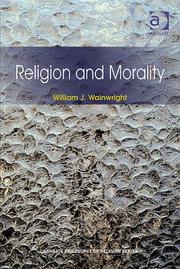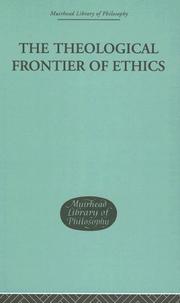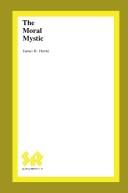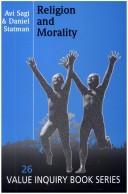| Listing 1 - 10 of 46 | << page >> |
Sort by
|
Book
ISBN: 1412355346 Year: 2007 Publisher: Chicoutimi : J.-M. Tremblay,
Abstract | Keywords | Export | Availability | Bookmark
 Loading...
Loading...Choose an application
- Reference Manager
- EndNote
- RefWorks (Direct export to RefWorks)
Book
ISBN: 155441377X Year: 2002 Publisher: Chicoutimi : J.-M. Tremblay,
Abstract | Keywords | Export | Availability | Bookmark
 Loading...
Loading...Choose an application
- Reference Manager
- EndNote
- RefWorks (Direct export to RefWorks)
Book
ISBN: 1622738691 Year: 2020 Publisher: Wilmington ; Spain : Vernon Press,
Abstract | Keywords | Export | Availability | Bookmark
 Loading...
Loading...Choose an application
- Reference Manager
- EndNote
- RefWorks (Direct export to RefWorks)
Book
ISBN: 3031298330 3031298349 Year: 2023 Publisher: Cham : Springer International Publishing AG,
Abstract | Keywords | Export | Availability | Bookmark
 Loading...
Loading...Choose an application
- Reference Manager
- EndNote
- RefWorks (Direct export to RefWorks)
This book explores the interplay between religion and economic ethics from ancient Greece to the twentieth century. It examines how moral and economic ethics have evolved, focusing on various historical periods including antiquity, the Middle Ages, the early modern period, and the modern era. Key topics include the moral economy of commerce, property transfers in the medieval church, usury, and moral economics in the context of epidemics and religious missions. The work aims to reassess the moral economy by providing a historical perspective on how economic activities have been influenced by religious and moral considerations. It is intended for scholars and students of economic history, religion, and ethics.
Religion and ethics. --- Economic history. --- Religion and ethics --- Economic history

ISBN: 1315244772 1281097764 9786611097769 0754682323 9780754682325 1351905066 9781351905060 0754616312 9780754616313 0754616320 9780754616320 6611097767 1409476979 135190504X 1351905058 9781315244778 9781281097767 6611097767 9781351905053 1351905058 9781351905046 Year: 2005 Publisher: Aldershot, England ; Burlington, VT : Ashgate,
Abstract | Keywords | Export | Availability | Bookmark
 Loading...
Loading...Choose an application
- Reference Manager
- EndNote
- RefWorks (Direct export to RefWorks)
Religion and Morality addresses central issues arising from religion's relation to morality. Part one offers a sympathetic but critical appraisal of the claim that features of morality provide evidence for the truth of religious belief. Part two examines divine command theories, objections to them, and positive arguments in their support. Part three explores tensions between human morality, as ordinarily understood, and religious requirements by discussing such issues as the conflict between Buddhist and Christian pacifism and requirements of justice, whether ""virtue"" without a love of God i

ISBN: 1138871249 1315829894 1317851234 1317851242 9781317851233 9781315829890 9781317851226 9781317851240 9780415296274 9781138871243 Year: 2002 Publisher: Abingdon, Oxon : Routledge,
Abstract | Keywords | Export | Availability | Bookmark
 Loading...
Loading...Choose an application
- Reference Manager
- EndNote
- RefWorks (Direct export to RefWorks)
First published in 2002. Routledge is an imprint of Taylor & Francis, an informa company.

ISBN: 0889207690 9780889207691 0889201498 9780889201491 Year: 1983 Publisher: Waterloo, Ont., Canada : Published for the Canadian Corporation for Studies in Religion by Wilfrid Laurier University Press,
Abstract | Keywords | Export | Availability | Bookmark
 Loading...
Loading...Choose an application
- Reference Manager
- EndNote
- RefWorks (Direct export to RefWorks)
Mysticism is condemned as often as it is praised. Much of the condemnation comes from mysticism's apparent disregard of morality and ethics. For mystics, the experience of ""union"" transcends all moral concern. In this careful examination of the works of such practitioners or examiners of mysticism as Paul Tillich, Thomas Merton, Evelyn Underhill, and Martin Buber, the author posits a spectrum of uneasy relationships between mysticism and morality. Horne explores the polarities of apophatic (imageless) and imaginative mysticism, the contemplative and the active life, and morality and amor

ISBN: 9004463860 9051838387 Year: 1995 Publisher: Amsterdam ; Atlanta, Georgia : Rodopi,
Abstract | Keywords | Export | Availability | Bookmark
 Loading...
Loading...Choose an application
- Reference Manager
- EndNote
- RefWorks (Direct export to RefWorks)
Religion and Morality seeks to answer two fundamental questions regarding the relation between religion and morality. The first is the puzzle posed by Socrates, the so-called ' Euthyphro dilemma', which asks: is morality valuable by virtue of its intrinsic importance and worth, or is morality valuable because, and only because, God approves it and commands us to follow its dictates? The second question is raised by Kierkegaard in Fear and Trembling . He asks: Is a conflict between religion and morality possible? Does God ever demand that we neglect our moral commitments? The discussion on these questions is divided into three parts. In the first two parts, we discuss the idea that morality depends on religion. The authors distinguish two types of dependence: strong dependence, according to which the very existence, or validity, of moral obligations depends on God's command, and weak dependence, according to which though morality itself is independent of God, God (or belief in God) is necessary to enable human beings to know their moral duties and to carry them out. The authors reject the strong dependence thesis, as well as most versions of the weak dependence. The third part of the book discusses different versions of the view that religion might conflict with morality. The authors reject this view, and show that very few religious thinkers would follow it all the way through to its ultimate consequences. The book has implications for the philosophy of religion, in its emphasis on the centrality of the moral element in religion, and for moral philosophy, in its highlighting, among other things, of the nature of moral judgments.
Book
ISBN: 0191047392 Year: 2015 Publisher: OUP Oxford
Abstract | Keywords | Export | Availability | Bookmark
 Loading...
Loading...Choose an application
- Reference Manager
- EndNote
- RefWorks (Direct export to RefWorks)
'It is written ...,' says the believer in a sacred text, and proceeds to justify all manner of terrifying things. Or so runs a popular caricature of religious faith today. Religions that center around a revelation--around a 'good book,' like the Torah or Gospels or Quran, which is seen as God's word--are widely regarded as irrational and dangerous: as based on outdated science and conducive to illiberal, inhumane moral attitudes. The Good and the Good Book defends revealed religion and shows how it can be reconciled with science and liberal morality. Samuel Fleischacker invites us to see revealed texts as aiming to teach neither scientific nor moral doctrines but a vision of what life is about overall. Purely naturalistic ways of thinking, he argues, cannot make much sense of our overall or ultimate good; revealed texts, by contrast, do precisely that. But these texts also need to be interpreted so as to accord with our independent understanding of morality. A delicate balance isrequired for this process of interpretation--between respecting the uncanny obscurity of our sacred texts and rendering them morally familiar. The book concludes with an account of how believers in one religion can respect believers in other religions, and secular people.
Religion --- Religion And Ethics --- Truth --- Philosophy --- Religion and ethics --- Sacred books
Book
ISBN: 1438435940 1441696830 9781441696830 9781438435947 9781438435930 1438435932 9781438435947 Year: 2011 Publisher: Albany : State University of New York Press,
Abstract | Keywords | Export | Availability | Bookmark
 Loading...
Loading...Choose an application
- Reference Manager
- EndNote
- RefWorks (Direct export to RefWorks)
Morals and politics depend on a metaphysical backing. All reality is marked by certain necessary features and a divine purpose inherent in all reality defines the good to which all human life should be directed.These are bold assertions in a climate where the credibility of metaphysics is widely denied. Indeed, for the past two centuries, Western philosophy has been marked by a consensus that questions about moral and political life should be considered separately from questions about ultimate reality. In this challenging work, Franklin I. Gamwell defends metaphysical necessity against both modern and postmodern critiques. The metaphysics vindicated is not the traditional form both critiques typically have in view, however. Instead, Gamwell outlines a neoclassical project for which Alfred North Whitehead and Charles Hartshorne are the main philosophical resources. As it maintains the significance of theistic metaphysics, the book makes no appeal to religious authority but solely to common human experience, and on this basis articulates principles of human purpose and democratic justice.
Ethics. --- Theism. --- Metaphysics. --- Religion and ethics. --- Democracy --- Philosophy. --- Religious aspects.
| Listing 1 - 10 of 46 | << page >> |
Sort by
|

 Search
Search Feedback
Feedback About UniCat
About UniCat  Help
Help News
News